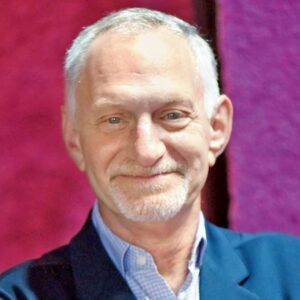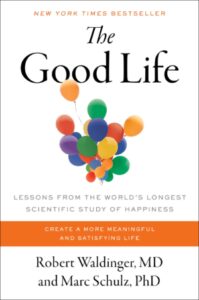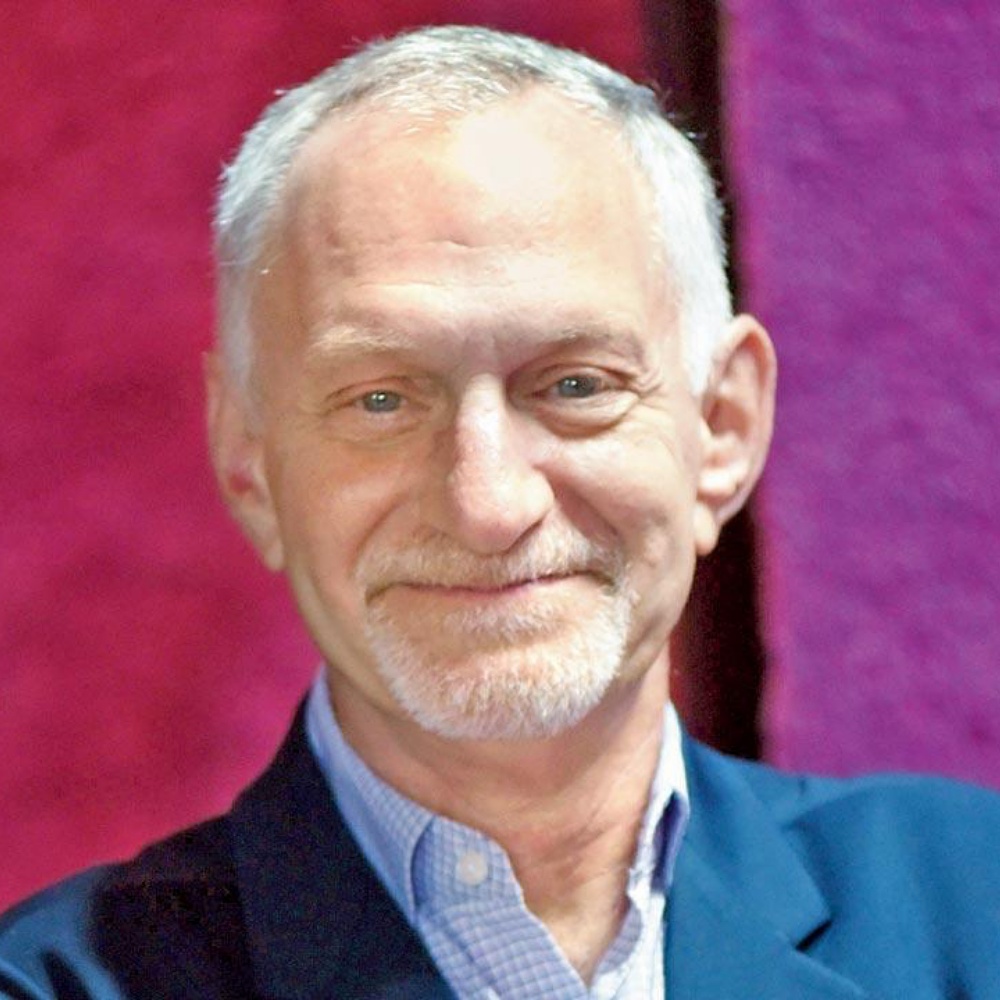Podcast: Play in new window | Download

What makes for a happy life? A good life?
In 1938, Harvard University researchers launched what’s now become the longest in-depth longitudinal study of human life ever done. The Harvard Study of Adult Development has followed the lives of two generations of individuals, from the same families, for nearly 85 years.
And the conclusion from all these decades of inquiry is that human thriving, & even longevity, are predicated on having meaningful connection with others. In other words, the stronger our relationships, the more likely we are to live happy, satisfying & flourishing lives.
 Dr. Robert Waldinger is the fourth director in the history of the Harvard Study, & he’s recently co-written the global bestseller, The Good Life: Lessons From The World’s Longest Scientific Study Of Happiness. His TED Talk about the Harvard Study, “What Makes a Good Life,” has been viewed 42 million times & is one of the ten most-watched TED talks ever.
Dr. Robert Waldinger is the fourth director in the history of the Harvard Study, & he’s recently co-written the global bestseller, The Good Life: Lessons From The World’s Longest Scientific Study Of Happiness. His TED Talk about the Harvard Study, “What Makes a Good Life,” has been viewed 42 million times & is one of the ten most-watched TED talks ever.
Dr. Robert Waldinger is also a professor of psychiatry at Harvard Medical School & is a practicing psychiatrist & psychoanalyst. He is a Zen master (Roshi) and teaches meditation all around the world….
While we’re all conditioned to believe that money buys happiness – & that a focus on material needs leads to the good life – Waldinger’s work proves that relationships in all forms: friendships, romantic partnerships, families, coworkers, tennis partners, book club members et al, is what truly characterizes a joyful & healthier life.
Inherently, this also means that having fewer friends & daily human interactions is directly harmful to well-being. In fact, the US Centers For Disease Control has found that having fewer social relationships (characterized by social isolation & loneliness) is associated with a 29% greater risk of heart disease & a 32% increased risk of stroke.
In an era where studies show most people today have only three-to-five close friends – & are often working alone, away from other people – a deprivation of steady connection may actually be harming us.
In our conversation with Dr. Waldinger, we explore ways of maximizing the benefits we gain from the brief interactions we have with other people most days (what he calls, “social fitness”). And he weighs in on remote working in one of the most provocative ways you’ve ever heard.
In truth, real human connection only occurs in our hearts (not in our brains), so this is a particularly important topic & guest for the “Lead From The Heart” podcast – not to mention its listeners.




